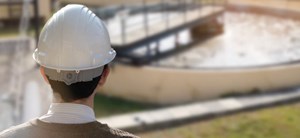Wastewater analysis and COVID testing sparks privacy concerns
COVID-19 virus are not experienced with ethical obligations associated with generating and handling human health data, a paper co-authored by seven researchers said.

Steve Hrudey, a professor emeritus from the University of Alberta's department of laboratory medicine and pathology and one of the authors of the paper, told CBC that this surveillance could lead to privacy concerns, since samples are often gathered from public sources without individual consent.
"Bioethics, which sort of underlies what health-care providers do, has historically been based upon 'do no harm' — and the idea of informed consent," Hrudey said in the article. "Well, informed consent is really not possible for this kind of technique."
The paper recommends that the wastewater surveillance program from COVID-19 should follow a list of 17 World Health Organization guidelines, highlighting four main goals to work toward the common good, equity, respect for persons and good governance.
This means the benefits of surveilling the wastewater should clearly outweigh the ethical risks of the community it came from, the paper states.
People can shed genetic material of the SARS-CoV-2 virus in the form of RNA, and it can sometimes be detected before someone shows symptoms of the disease, CBC reported.
Newsha Ghaeli, co-founder of wastewater epidemiology company Biobot Analytics, told CBC that her company can detect a positive case in a sample from a population of 6,500 people, but there is no way to identify an individual even if they detect a single positive case. Poop is not identifying in a way like fingerprints can be, the article states.
But Hrudey remains concerned that "you can zero in on very small areas” from specific sewer networks, CBC reported. There have been cases in Hong Kong and Singapore of authorities tracking down positive wastewater samples from individual apartments, the article states.
"The authorities have shown up and said, 'Well, you know, you've got a case here and you need to be tested,'" he said. "Now, you can argue that there's a public health rationale for that. But you can see there's a slippery slope possible."
This has not been proposed in Canada, however, Hrudey said.
"Health authorities are bound, at least in Alberta and I suspect in most provinces, by very strict privacy legislation concerning individually identifiable health records," he wrote to The Sunday Magazine in a follow-up email.
But Ghaeli agrees that a more definitive ethical groundwork for wastewater surveillance needs to be laid out sooner than later.
Related News
From Archive

- Glenfarne Alaska LNG targets late-2026 construction start for 807-mile pipeline project
- U.S. water reuse boom to fuel $47 billion in infrastructure spending through 2035
- $2.3 billion approved to construct 236-mile Texas-to-Gulf gas pipeline
- Major water pipe break in Puerto Rico hits over 165,000 customers
- Potomac River Tunnel project enters construction phase beneath Washington, D.C.
- Pennsylvania American Water launches interactive map to identify, replace lead water service lines
- Trump's tariffs drive $33 million cost increase for Cincinnati sewer project
- Utah city launches historic $70 million tunnel project using box jacking under active rail line
- Tulsa residents warned after sewer lines damaged by boring work
- Fatal trench collapse halts sewer construction in Massachusetts; two workers hospitalized



Comments